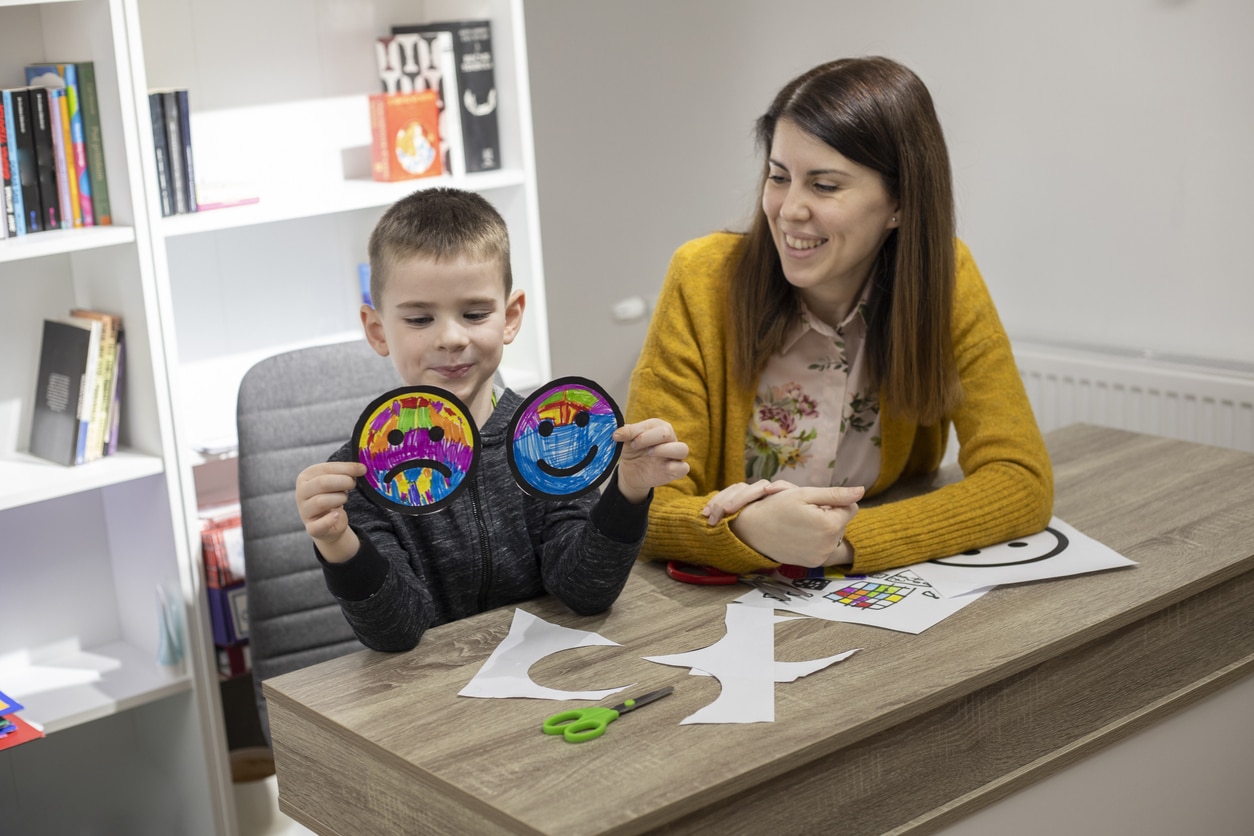How ABA Enhances Communication in Children

Effective communication skills are fundamental for a child’s social and emotional development. Children who struggle with communication may face difficulties in expressing their needs, understanding others, and forming meaningful relationships. Applied Behavior Analysis (ABA) has proven to be a valuable intervention in improving communication abilities in children. Understanding how ABA therapy benefits communication can help you determine if this treatment option is right for your child.
Autism and Communication Difficulties
Autism is a neurodevelopmental disorder characterized by a wide spectrum of challenges, one of the most prominent being communication difficulties. Children with autism often encounter obstacles in verbal and nonverbal communication, making it challenging for them to effectively express their thoughts, feelings, and needs. They may struggle with understanding social cues and sarcasm, maintaining eye contact, and interpreting facial expressions, which can hinder their ability to engage in reciprocal interactions with others.
Despite these challenges, it’s essential to recognize that each child with autism is unique, and with appropriate support and understanding, they can develop their communication skills and form meaningful connections with peers and family.
What is ABA?
Applied Behavior Analysis (ABA) therapy is a scientific approach that focuses on understanding and changing behavior. It is widely recognized as an evidence-based intervention for children with developmental and behavioral challenges, including children struggling with communication. Board Certified Behavior Analysts (BCBA) and Registered Behavior Technicians work closely with children to identify specific communication barriers and develop personalized strategies to promote effective communication.
ABA Communication Goals
Before beginning ABA sessions, a comprehensive assessment of the child’s communication abilities. A BCBA will evaluate your child’s verbal and non-verbal communication skills. This assessment helps identify specific communication deficits and the child’s strengths.
Based on the assessment, your child’s BCBA will develop communication goals to be worked on during ABA therapy. These goals are tailored to address your child’s unique needs and areas of improvement. These goals may include improving vocabulary, sentence construction, understanding non-verbal cues, and using appropriate language in different social situations.
How ABA for Communication Works
ABA therapy focuses on breaking down complex communication skills into smaller, achievable steps. Some of the most common ABA communication strategies used to enhance communication include include:
Positive Reinforcement
ABA utilizes positive reinforcement techniques to encourage and reward desired communication behaviors in children. When a child makes an effort to communicate effectively, such as using words to express their needs or emotions, they are praised and rewarded. Positive reinforcement helps reinforce positive communication habits and motivates the child to continue improving their skills.
Prompting and Fading
Prompting and fading are essential strategies used in ABA to guide children towards better communication. Initially, your child’s RBT may provide prompts or cues to help the child respond appropriately in various situations. As the child progresses, these prompts gradually fade out, allowing the child to develop independent communication skills.
Social Skills Training
Effective communication involves more than just words; it also encompasses social skills. ABA incorporates social skills training to help children develop appropriate communication in various social settings. They learn how to initiate conversations, take turns in a discussion, and read body language of others, which are crucial for successful interactions with peers and adults.
ABA Therapy at Empower Behavioral Health
Communication is a necessary part of a child’s development and it impacts many aspects of their life. ABA has proven to be a powerful tool in enhancing communication skills in children with autism. By setting individualized goals, implementing positive reinforcement techniques, and addressing both verbal and non-verbal communication, ABA equips children with the necessary tools to succeed socially and emotionally. Empower Behavioral Health provides high-quality ABA therapy services for children with autism throughout Texas. Contact us to learn more about our full-time and part-time ABA programs or get started today.

